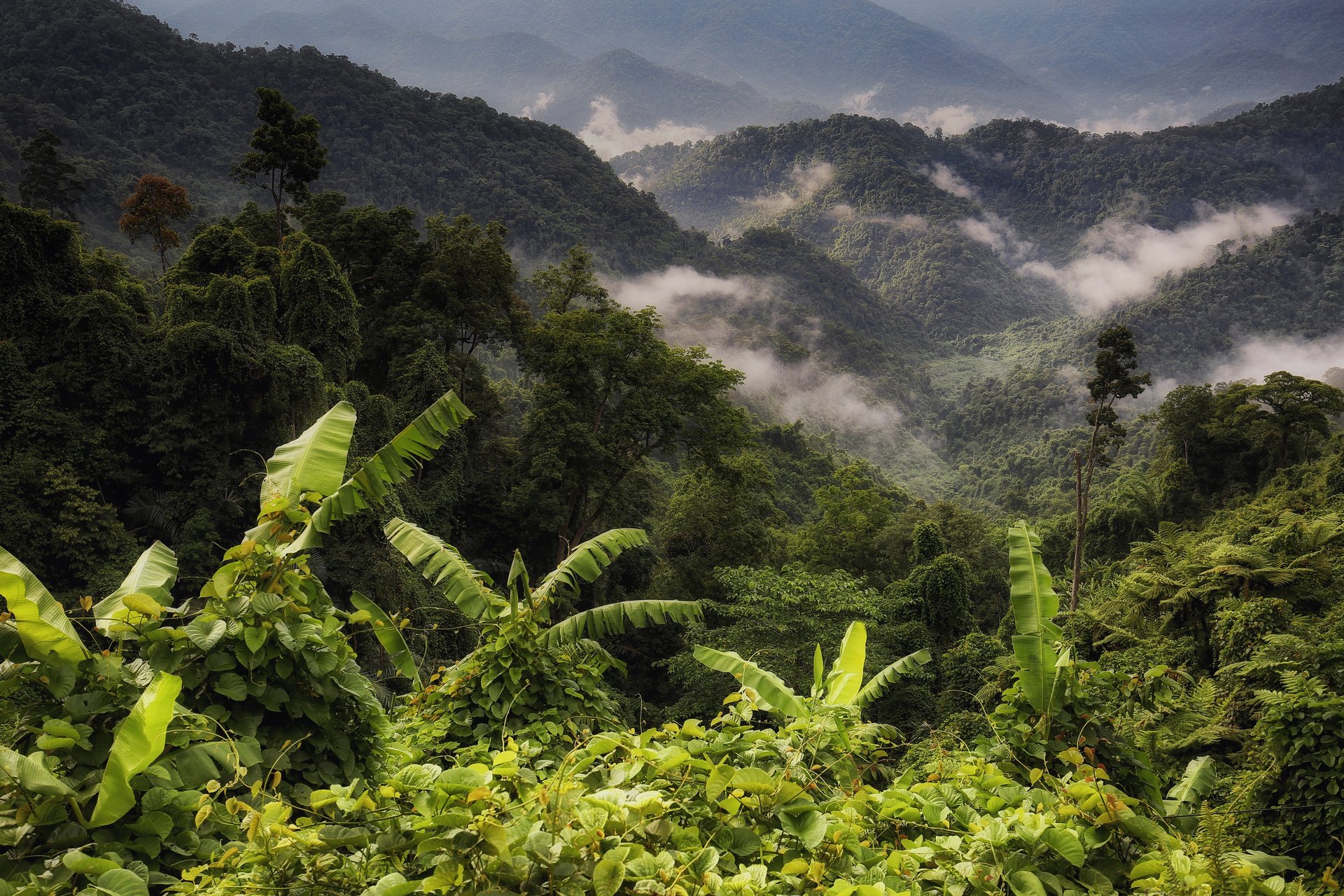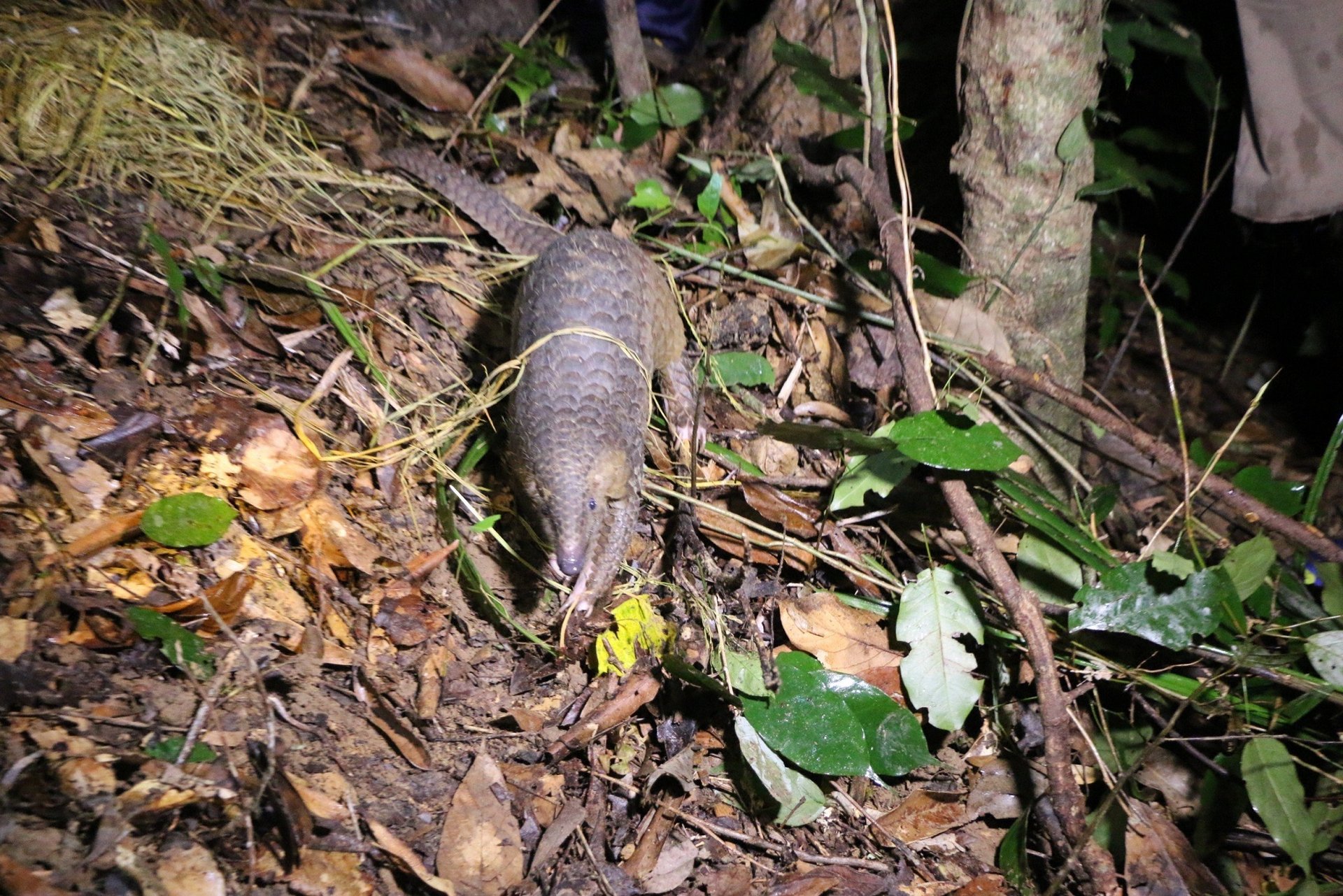May 22, 2025 | 04:49 GMT +7
May 22, 2025 | 04:49 GMT +7
Hotline: 0913.378.918
May 22, 2025 | 04:49 GMT +7
Hotline: 0913.378.918

Natural landscape in the Central Annamites. Photo: Thanh The Vinh/WWF.
On September 11, the World Wildlife Fund, Inc. (WWF) and the Ministry of Agriculture and Rural Development (MARD) announce a collaboration to support new investments in nature-based solutions (NbS).
Nature-based solutions are actions for societal challenges inspired by natural processes and functioning. By developing and implementing solutions that are supported by nature, resilience is achieved while producing societal, environmental, and economic benefits. These solutions will address climate change, protect and restore biodiversity and benefit local communities in the Central Annamites of Vietnam, one of the largest contiguous primary forests in continental Asia.
The initiative is part of WWF’s new Nature-Based Solutions Origination Platform (NbS-OP), an innovative vehicle for high-quality and high-integrity NbS that will drive impact at scale for people, climate and nature across tropical forest landscapes.
Key NbS-OP partners around the globe include U.S. companies HP Inc., Apple and International Paper. In Vietnam, this collaboration builds on WWF’s work as the U.S. Agency for International Development’s implementing partner in large-scale biodiversity conservation in the Central Annamites and will include a variety of conservation approaches, such as protection, restoration, and improved forest management.
“We greatly appreciate WWF’s long-time contributions to and continued support of Vietnam’s critical forest landscapes,” said Minister of Agriculture and Rural Development Le Minh Hoan of Vietnam. “In the years to come, we look forward to working with WWF to protect our treasured Central Annamites while developing lasting, quality nature-based solutions to benefit people, nature and the climate in Vietnam and beyond.”
The Central Annamites landscape, a natural carbon sink, is renowned for its unique biodiversity. Forest coverage ranges between 47% to 68%, with more than 2.3 million hectares of natural forest. As a result, the area is home to many endemic and endangered species, including the Saola, Large-antlered muntjac, the Truong Son muntjac, and more. Roughly 18.5 million people live in the Central Vietnam and depend on the natural resources there in one way or another.
Unfortunately, this vital landscape is losing its biodiversity, facing “empty-forest syndrome” due to its degraded and fragmented habitats. Climate change and the impact of human activities are the most significant threats to the ecosystem. These activities include illegal hunting and logging, forest conversion, and encroachment for livelihoods. Infrastructure and economic development are further exacerbating habitat fragmentation and worsening the impacts of climate change.

The pangolin was rescued and released back into the Annamite forest. Photo: WWF.
Vietnam is one of the countries with high biodiversity in the world, with many endemic plant and animal species. However, over the past few decades, Vietnam has experienced rapid economic growth and development, which has resulted in the destruction of natural habitats, overexploitation of resources, and loss of biodiversity.
Therefore, it is crucial to restore natural ecosystems, return native species to their habitat, and protect ecological cycles. These programs can help restore biodiversity and improve ecosystem functions and tasks. They can also help enhance the resilience of ecosystems to environmental stressors and climate change.
Many years ago, WWF developed restoration programs to address these issues, creating green corridors to connect fragmented forests and advocating for and supporting the establishment of the Saola Nature Reserves in Thua Thien Hue and Quang Nam. New technology, such as SMART, e-DNA analysis, and GIS, was introduced to monitor and manage wildlife in the region’s protected areas. Recently, WWF and its partners supported the launch of a rewilding program in Bach Ma NPs. In addition, WWF is working directly with local communities and companies to improve livelihoods and deliver large-scale conservation results.
Said Van Ngoc Thinh, CEO of WWF-Vietnam, “Conservation is a long-term endeavor that can take upwards of 20 to 30 years to yield results. That’s why long-term funding is essential. The NbS-OP aims to provide just that by aligning and mobilizing public and private investments in high-quality NbS under an integrated landscape finance approach.”
WWF works globally on promoting nature-based solutions and prioritizing actions that benefit people, nature and climate to develop measurable, people-centered initiatives across the world that harness nature-based solutions and emphasize the benefits of protecting and restoring nature to businesses, cities, communities and governments.
WWF is calling for nature-based solutions to be part of the Convention on Biological Diversity’s Global Biodiversity Framework and working to strengthen the alignment between climate and nature conventions.
Translated by Quynh Chi

(VAN) The draft amendment to the Circular on rice export trading stipulates a periodic reporting regime for rice exporting enterprises.

(VAN) Dong Thap farmers attained an average profit margin of 64% during the summer-autumn 2024 crop (first season), while An Giang and Kien Giang farmers followed with 56% and 54%, respectively.

(VAN) As a doctoral student doing research on renewable energy and electrification at Harvard University, the author shares his musings on electricity, nature, and countryside memories.

(VAN) The decree on Extended Producer Responsibility (EPR) ensures transparent management and disbursement of support funds, avoiding the creation of a “give-and-take” mechanism.

(VAN) Hue City rigorously enforces regulations regarding marine fishing and resource exploitation, with a particular emphasis on the monitoring of fishing vessels to prevent illegal, unreported, and unregulated (IUU) fishing.

(VAN) Hanoi People's Committee has issued a plan on reducing greenhouse gas emissions in the waste management sector with 2030 vision.

(VAN) Vietnam's draft amendment to Decree No. 156 proposes a mechanism for medicinal herb farming under forest canopies, linking economic development to population retention and the sustainable protection and development of forests.